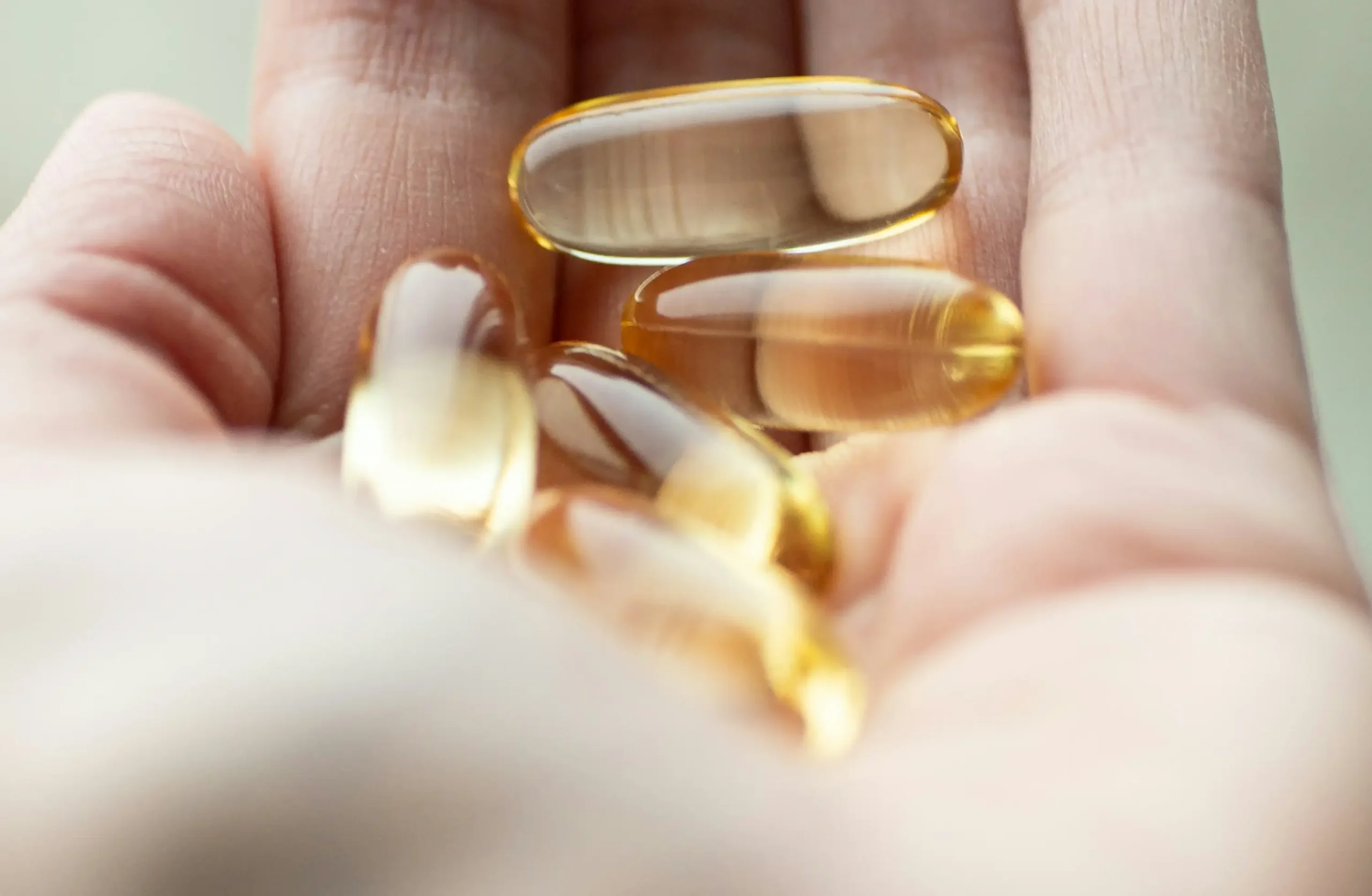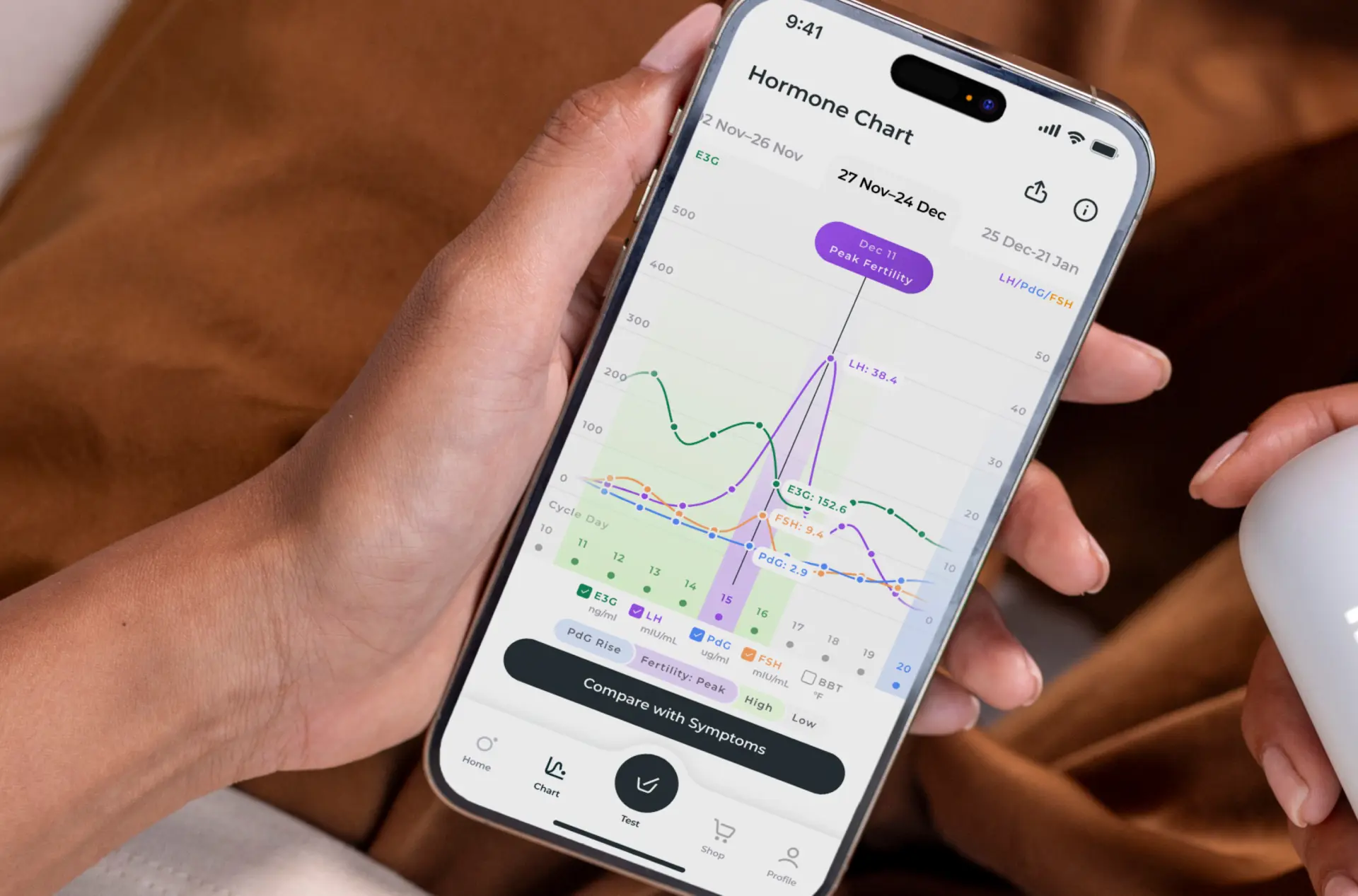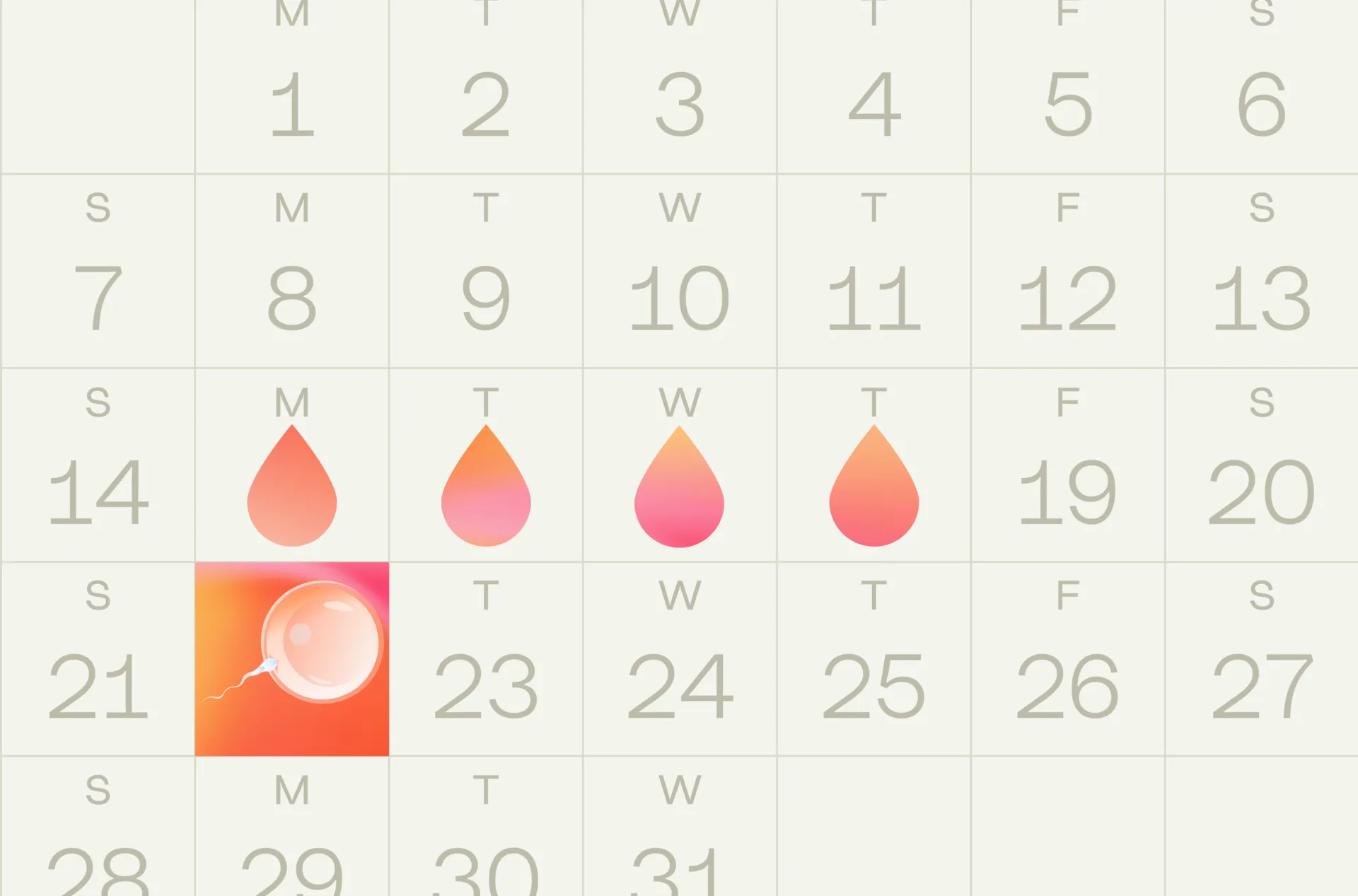Content table
With so many supplements on the market, it can be tricky to find the best vitamins for male fertility. But getting this answer could open up the chance to boost your odds of conception.
Male infertility is a key factor for half of all couples who are unable to conceive. Sometimes, it’s the only issue standing in the way of a successful pregnancy. Many different things can cause male infertility. Some are possible to change, but others aren’t. Here are the top supplements to support your quest to make a baby.
Summary
- Male infertility is a common problem for couples who struggle to conceive.
- It’s equally important to address male and female fertility concerns to improve the chances of pregnancy.
- Vitamins, minerals, and herbal supplements can boost sperm count, motility, and function.
- Vitamins such as Vitamin E, C, and minerals such as Zinc, Selenium have been proven effective in boosting male fertility
- L-Carnitine and Coenzyme Q10 are also some of the best vitamins for male fertility
- Some herbal supplements like ashwagandha, gokshura, and shilajit also support male fertility
- Supplements can’t cure male infertility issues that need medical treatment.
What is male fertility?
Technically speaking, fertility is the ability to establish a pregnancy. Both male and female reproductive health are essential to achieve this goal.
The male reproductive system is made up of internal and external organs. Internally, there are the testes, epididymis, vas deferens, and prostate. The scrotum and the penis are the male external reproductive organs.
Males start making sperm during puberty. Sperm production happens in the seminiferous tubules located in the testes. There are lots of different steps to making mature and functional sperm. Specialized cells, known as spermatogonia, divide multiple times to form the final result, called spermatozoa.
Hormones guide the formation of sperm. Communication happens along the hypothalamic-pituitary-gonadal axis, which is a pathway from the brain to the reproductive organs.
The hormones involved include:
- Follicle-Stimulating Hormone (FSH)
- Gonadotropin-Releasing Hormone (GnRH)
- Inhibin
- Luteinizing Hormone (LH)
- Testosterone
GnRH triggers the pituitary gland to release FSH and LH. Then FSH acts on the Sertoli cells, which provide nutrients to the developing sperm cells. Testosterone is produced in response to LH. It’s essential for cell division as the sperm matures. Inhibin blocks FSH to help regulate the process. Any dysfunction in this process can lead to problems in male fertility.
What is male infertility?
A couple is considered infertile if they don’t conceive after a full year of frequent, unprotected sexual intercourse. Males are suspected to be infertile if they don’t produce a pregnancy with a female partner who is fertile.
A possible cause of male infertility is related to reproductive anatomy (the shape and function of sex organs). Another common cause in 40% to 90% of cases is not making enough sperm or making abnormal sperm.
Doctors can order a semen analysis to help figure out the problem. Some of the reference values for the things they measure include:
Parameter | Value |
Ejaculate volume: | 1.5 mL |
pH | > 7.2 |
Total sperm count | 33–46 million/ejaculate |
Sperm concentration | 12-16 million/mL |
Sperm Morphology | > 30% normal forms |
Total motility | >60% |
Seminal fructose | >13 micromol/ejaculate |
Any results that are outside of these ranges can point to a fertility problem that requires more follow-up testing.
Read more:
Sperm Motility and Fertility: Boost Your Baby Chances
Can vitamins boost sperm health?
Men are most fertile when they produce a sufficient number of normal, motile (capable of movement), mature, and functional sperm. Only 6% of infertility cases in men are caused by a serious underlying issue. In 65% to 80% of cases of abnormal sperm analysis results, doctors don’t know what’s causing the problem. The same is true for 10% to 20% of male infertility cases.
Antioxidants and the best vitamins for male fertility can aid in boosting your chances, especially if there isn’t a known cause of infertility.
Read more: Vitamins for Fertility: Supplements to Take When TTC
What are the best vitamins for male fertility?
Some vitamins have shown promising effects for male fertility. You can find the best vitamins for male fertility in dietary supplements or food sources. But just remember to always discuss supplements with your doctor before taking them.
Selenium
Selenium is an essential trace element. It supports the development of the testicles and the production of functional sperm. Men also need selenium to maintain healthy testosterone levels, making it one of the best vitamins for male fertility.
Selenium is an antioxidant, meaning it helps protect against stressful conditions that can harm the sperm. It’s found in various foods, including grains, fish, meat, poultry, eggs, and dairy products.
Recommended Daily Allowance (RDA): 70 μg
L-Carnitine
L-carnitine is a compound that’s made from two amino acids, lysine and methionine. It helps the body digest fats and create energy. It’s also thought to help with sperm motility.
In one study, researchers compared the effects of L-carnitine, vitamin E, and another supplement called CoQ10. L-carnitine significantly boosted men’s LH and testosterone levels.
Other studies have shown that L-carnitine supplements improve total sperm motility and semen morphology. However, it doesn’t affect sperm concentration.
Food sources of L-carnitine include fish, meat (especially red meat), and dairy. There’s no required intake value for L-carnitine specifically, but adults need 15 mg of carnitine in general each day. But taking too much carnitine (3 grams per day) can make you feel sick.
Coenzyme Q10
Coenzyme Q10 (CoQ10) is an antioxidant. It supports functions in the mitochondria, which are the part of cells that make energy. CoQ10 also helps regulate what moves into and out of the cells.
Researchers have observed a connection between CoQ10 levels in the seminal fluid and sperm count and motility. In one study, 26 weeks of CoQ10 supplementation improved the density and quality of sperm. Supplementing for longer led to even better results. Stopping the supplement caused sperm markers to revert to their starting values.
CoQ10 is found in salmon, sardines, pork, chicken, nuts, soybeans, and vegetable oils. There’s no established recommended daily allowance (RDA), but supplements come in doses of 30 to 600 mg per serving. Between 300 and 600 mg per kilogram of body weight is generally safe, unless you have health problems. Doses above 1200 milligrams can cause unwanted side effects.
Read more: Everything You’ve Been Wondering About CoQ10 for Fertility, Answered
Vitamin C
Vitamin C is a water-soluble vitamin. It’s an antioxidant that boosts sperm quality and protects sperm from damage. It also helps make collagen and other proteins. In a small study on 13 men with infertility, vitamin C supplements raised sperm counts after two months. Vitamin C supplements also improved sperm motility and agglutination (a sign of infertility) in another study.
People who smoke need more and are advised to take an extra 35 mg. Plant foods high in vitamin C include:
- Citrus fruits
- Tomatoes
- Potatoes
- Red and green peppers
- Kiwifruit
- Broccoli
- Strawberries
- Brussels sprouts
- Cantaloupe
Recommended Daily Allowance (RDA): 90 mg
Zinc
Zinc is an essential element that supports the immune system, cell growth, and genetic materials. A zinc deficiency can cause sperm production to stop. But too much zinc is also harmful to sperm.
Iron supplements can make it harder to absorb zinc supplements if taken together. You can also get zinc from eating oysters, meat, seafood, beans, nuts, and whole grains.
Recommended Daily Allowance (RDA): 11 mg
Vitamin E
Vitamin E is a fat-soluble antioxidant. It protects the mitochondria of sperm cells, making them more likely to maintain good motility. Vitamin E is one of the best vitamins for male fertility that’s easy to find in everyday food items.
Most people shouldn’t supplement more than 1000 IUs of vitamin E per day, but as much as 1600 IUs is unlikely to cause side effects. Food sources include:
- Nuts
- Seeds
- Vegetable oils
- Green leafy vegetables
- Fortified cereals
Recommended Daily Allowance (RDA): 15 mg
Herbal male fertility supplements
Herbal supplements are also popular for male fertility. But keep in mind that they may have unexpected side effects and interfere with certain medications. Be sure to discuss herbal supplements with your doctor before picking them up at the store.
Ashwagandha
Ashwagandha, or more accurately, Indian Ginseng/ Withania somnifera. People use this herb to reduce stress and enhance brain function and physical performance.
Ashwagandha promotes testosterone production and may improve sperm count and motility. Taking up to 600 mg per day for up to three months is considered safe. However, it’s not right for everyone. If you have low blood pressure or low blood sugar, you shouldn’t take it. Men with autoimmune disorders, hormone-sensitive prostate cancer, or who take immunosuppressants should also avoid Ashwagandha.
Gokshura
Gokshura is also known as Tribulus terrestris. It’s a diuretic, meaning it makes you urinate more. It’s also an aphrodisiac that boosts sex drive and may help with infertility.
Studies suggest that Gokshura may increase testosterone by increasing LH and GnRH levels. Clinical trials have found that taking 250 mg twice a day offers reproductive benefits.
Shilajit
Shilajit comes from high mountain rocks. It’s sourced from the Himalayas, Russia, and Nepal.
Shilajit is rich in fulvic acid. Research suggests it has nutraceutical properties, meaning it offers natural health benefits. Shilajit is a powerful and safe supplement.
Research shows that it supports daily sperm production in the testicles. It improves sperm quality and development. In another study, 100 mg twice a day for 90 days increased serum testosterone and FSH levels.
How else can men improve their fertility?
Infertility should be addressed with your healthcare provider. If they can figure out what’s causing it, there’s a better chance of improving it.
Even the best vitamins for male fertility can’t cure another underlying cause that needs treatment. Your doctor can do regular semen analysis tests to see if there’s a change in your sperm count or other factors.
There’s limited evidence on the safety and effectiveness of most supplements. Other options for male infertility may include testosterone therapy and assisted reproduction technology.
Female partners should also focus on a healthy lifestyle to support fertility. These can include getting enough sleep, exercise, and eating a healthy diet. Tracking your cycles and symptoms with a fertility app like Inito can help you understand your body better. Work as a team to search for solutions and make healthy choices together.
Read more:
Identifying Infertility: Common Signs, Symptoms, and Causes in Men and Women

FAQs
Research shows that 200 milligrams per day of CoQ10 supplements can improve sperm parameters. But a higher dose of 400 milligrams per day provides an even greater benefit to male fertility. Your healthcare provider can help you decide on the right dosage for you.
Being abstinent (not ejaculating) for a few days can boost the number of sperm. By avoiding ejaculation for 24 hours before having sexual intercourse, you may be able to achieve a higher sperm volume without compromising sperm quality (which happens after several days of abstinence).
In addition, eating healthy, not smoking, avoiding alcohol, and getting a good night’s sleep can all help promote healthier sperm.
Foods that have vitamins E and C and the minerals zinc and selenium support healthy sperm production. You can get these nutrients from eating a variety of nutritious foods, including seafood, nuts, dark green vegetables, eggs, and whole grains. But it is important to keep in mind that these foods need to be taken regularly for at least 3 months to notice improvement.
Zinc isn’t a cure for male infertility. It helps in some cases, but not in others. Studies have shown that improvements in sperm count may happen after 26 weeks of zinc plus folic acid supplementation.
Was this article helpful?
- Male Infertility | StatPearls
- Fertility and infertility: Definition and epidemiology | Clinical Biochemistry
- Physiology, Male Reproductive System | StatPearls
- Selenium–vitamin E supplementation in infertile men: effects on semen parameters and pregnancy rate | International Journal of General Medicine
- Semen Analysis | StatPearls
- Influence of oral vitamin and mineral supplementation on male infertility: a meta-analysis and systematic review | Reproductive Biomedicine Online
- Selenium–vitamin E supplementation in infertile men: effects on semen parameters and pregnancy rate | International Journal of General Medicine
- L-carnitine: Nutrition, pathology, and health benefits | Saudi Journal of Biological Sciences
- Comparison of L-Carnitine vs. Coq10 and Vitamin E for idiopathic male infertility: a randomized controlled trial | European Review for Medical and Pharmacological Sciences
- Carnitine | National Institutes of Health Office of Dietary Supplements
- Effects of the reduced form of coenzyme Q10 (ubiquinol) on semen parameters in men with idiopathic infertility: a double-blind, placebo controlled, randomized study | The Journal of Urology
- Coenzyme Q10 | StatPearls
- Improvement in human semen quality after oral supplementation of vitamin C | Journal of Medicinal Food
- Effects of vitamin E and vitamin C on male infertility: a meta-analysis | International Urology and Nephrology
- Vitamin C | National Institutes of Health Office of Dietary Supplements
- The Role of Zinc in Male Fertility | International Journal of Molecular Sciences
- Zinc | National Institutes of Health Office of Dietary Supplements
- Vitamin E | National Institutes of Health Office of Dietary Supplements
- Ashwagandha (Withania somnifera)—Current Research on the Health-Promoting Activities: A Narrative Review | Pharmaceutics
- Role of Withania somnifera (Ashwagandha) in the management of male infertility | Reproductive BioMedicine Online
- Ashwagandha: Is it helpful for stress, anxiety, or sleep? | National Institutes of Health Office of Dietary Supplements
- Clinical study of Tribulus terrestris Linn. in Oligozoospermia: A double blind study | An International Quarterly Journal of Research in Ayurveda
- Evaluation of the efficacy and safety of Tribulus terrestris in male sexual dysfunction-A prospective, randomized, double-blind, placebo-controlled clinical trial | Maturitas
- Shilajit: A Natural Phytocomplex with Potential Procognitive Activity | International Journal of Alzheimeris Disease
- Shilajit mitigates chemotherapeutic drug-induced testicular toxicity: Study on testicular germ cell dynamics, steroidogenesis modulation, and Nrf-2/Keap-1 signaling | Journal of Ayurveda and Integrative Medicine
- Clinical evaluation of spermatogenic activity of processed Shilajit in oligospermia | Andrologia
- Diagnosis and Treatment of Infertility in Men: AUA/ASRM Guideline | American Urological Association
- The impact of two doses of coenzyme Q10 on semen parameters and antioxidant status in men with idiopathic oligoasthenoteratozoospermia | Clinical and Experimental Reproductive Medicine
- Short abstinence: A potential strategy for the improvement of sperm quality | Middle East Fertility Society Journal
- Effects of folic acid and zinc sulfate on male factor subfertility: a double-blind, randomized, placebo-controlled trial | Fertility and Sterility












